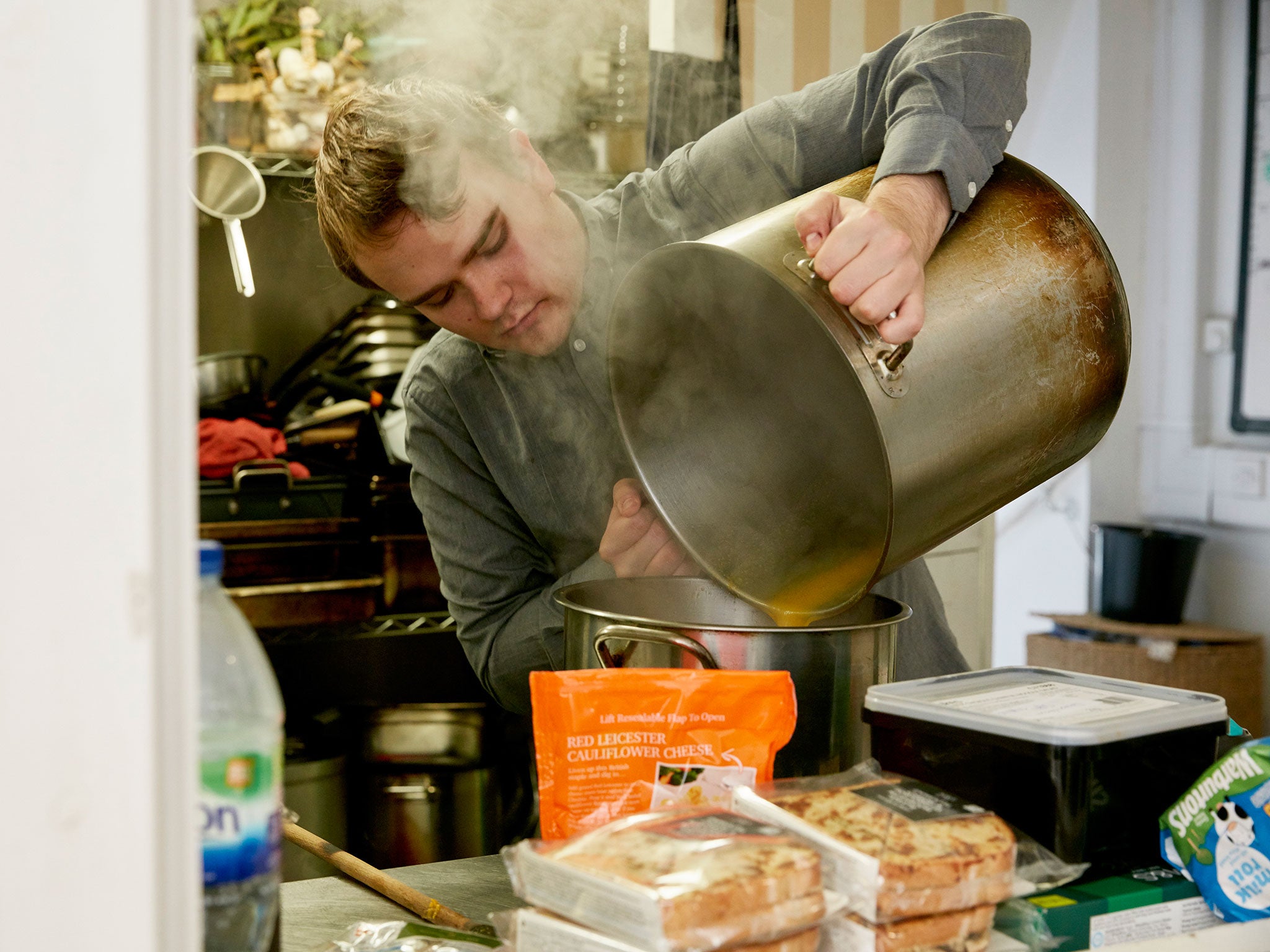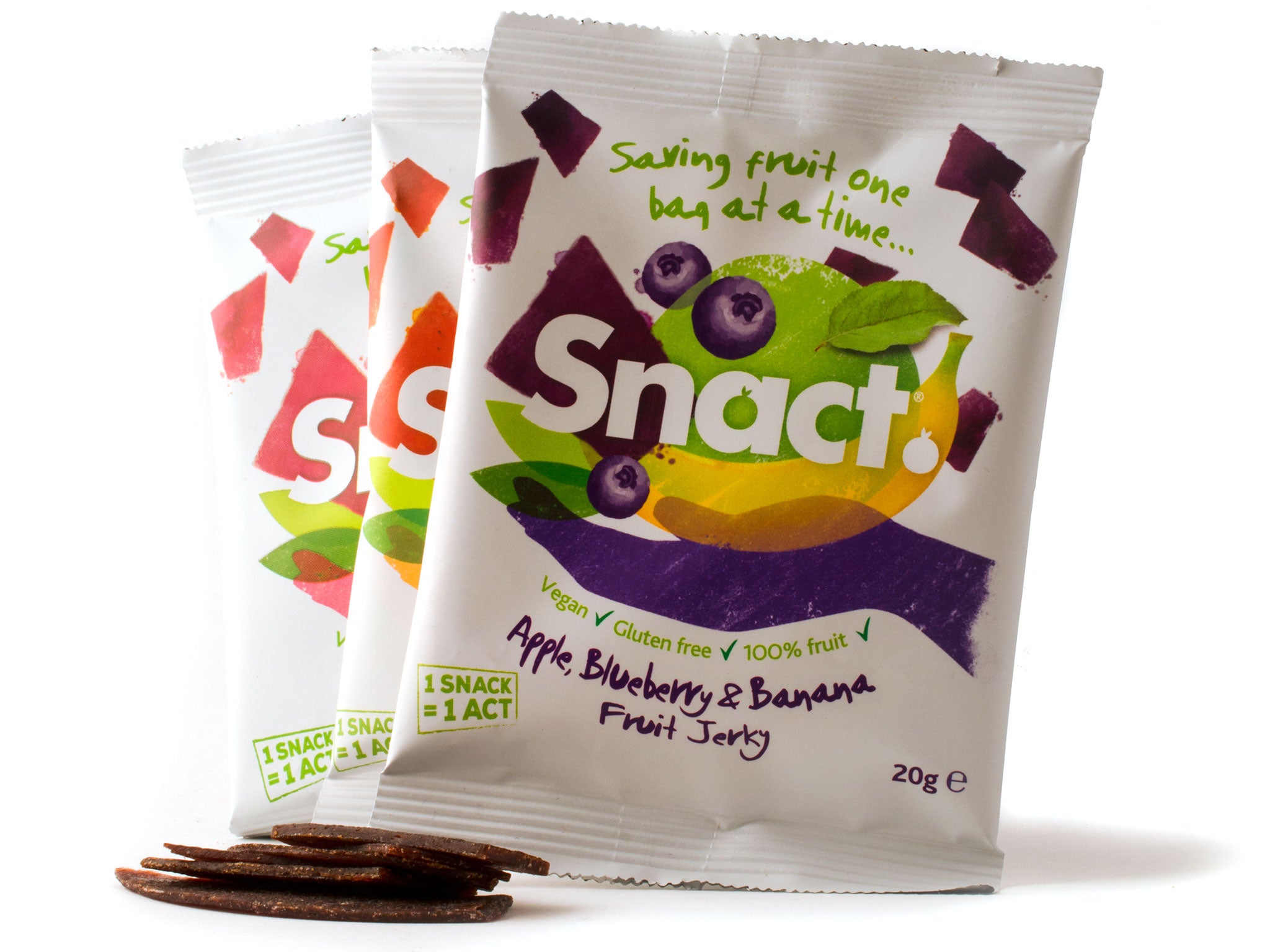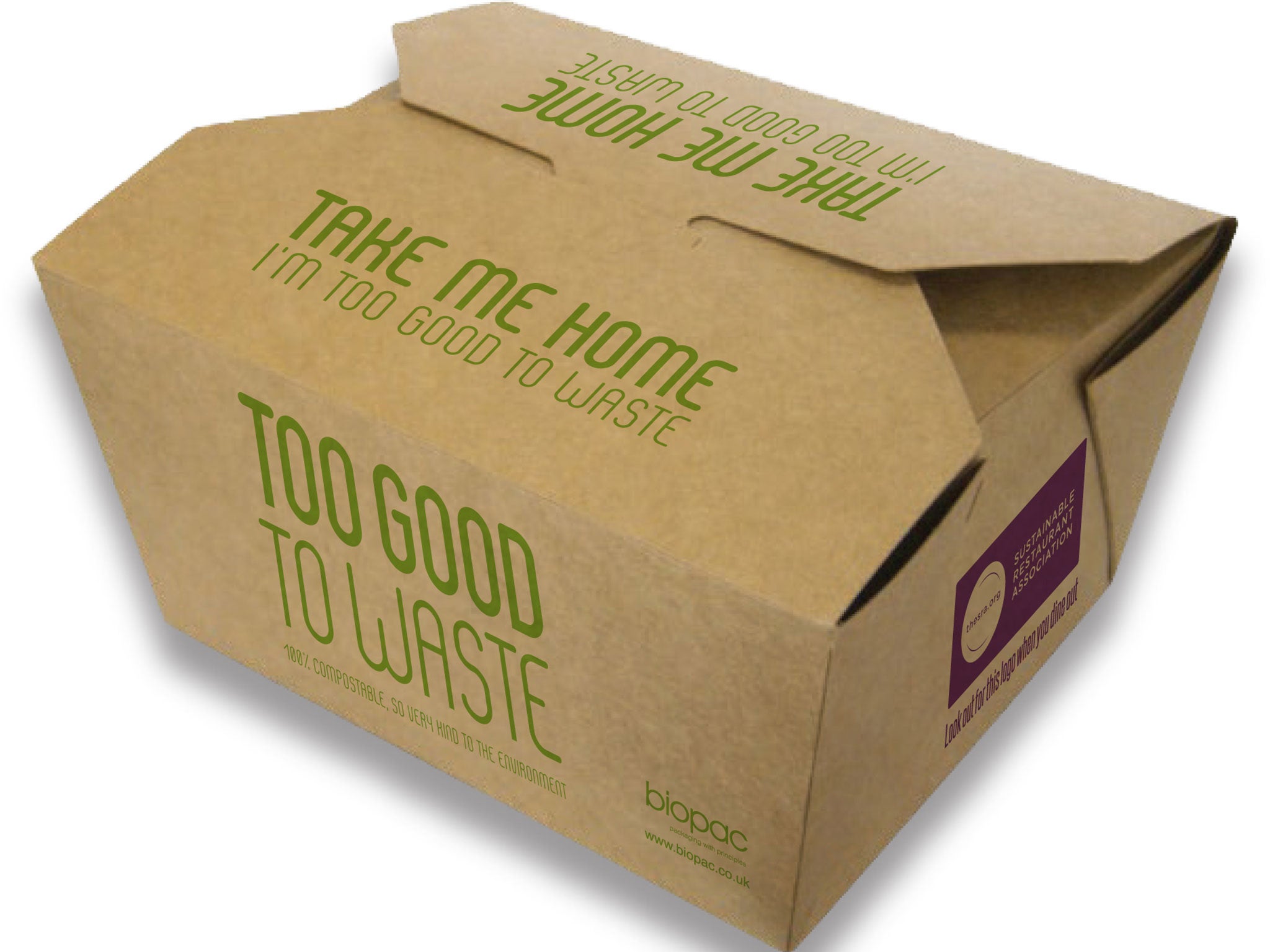Ocado backs 'pay as you feel' cafe campaign to tackle food waste
More than 50% of food wasted comes from home, and most is safe to eat – Ocado is moving to this give food to cafes

Your support helps us to tell the story
From reproductive rights to climate change to Big Tech, The Independent is on the ground when the story is developing. Whether it's investigating the financials of Elon Musk's pro-Trump PAC or producing our latest documentary, 'The A Word', which shines a light on the American women fighting for reproductive rights, we know how important it is to parse out the facts from the messaging.
At such a critical moment in US history, we need reporters on the ground. Your donation allows us to keep sending journalists to speak to both sides of the story.
The Independent is trusted by Americans across the entire political spectrum. And unlike many other quality news outlets, we choose not to lock Americans out of our reporting and analysis with paywalls. We believe quality journalism should be available to everyone, paid for by those who can afford it.
Your support makes all the difference.Buying groceries only to toss them into the street on the way home sounds absurd – and yet 1.3 billion tonnes of food fit for human consumption is thrown away worldwide each year by both consumers and businesses.
Such eye-opening figures have ignited an anti-food waste movement in recent years, to raise awareness of how such behaviour not only harms the environment and exacerbates food poverty but also dents wallets.
In the UK alone, almost 50 per cent of the total food thrown away comes from the home even though half of it is safe to eat, according to the Love Food Hate Waste campaign run by anti-waste charity Wrap.
But attitudes are changing. Between 2007 and 2012, avoidable waste was cut by a fifth. And if all of the tonnes of produce in the UK currently sent to landfills was eaten, it would save as much energy as removing one in four cars off the road.
The latest battle in the war against waste sees online supermarket Ocado pledging produce to The Real Junk Food Project (TRJFP): a network of cafes which intercepts grub before it is trashed.

Following a trial with TRJFP in November last year, Ocado will store food from orders cancelled by customers after it has been picked and packed, to be collected by the charity daily.
TRFJP turns donations into healthy meals served at its “pay as you feel” cafes across the UK, as well as locations in Europe and Australia. Since 2013, the organisation has reused about 324.8 tonnes of food to create almost 200,000 meals in the UK alone.
The supermarket claims to be the first UK retailer to send orders cancelled by customers directly to a charity. However, it is not alone in clamping down on waste.
In 2009, leading retailers including Tesco, Sainsbury’s, Waitrose, Asda, Marks & Spencer and bread manufacturer Warburtons signed up to an industry-wide objective to reduce food waste.
Earlier this year, Sainsbury’s became the first supermarket to replace multi-buy promotional offers, such as buy one get one free, with lower prices overall after a government-backed report found that over a quarter of consumers are “enticed” by deals to buy more than they need.
The move followed a 2013 decision by Tesco to drop food promotions after it discovered that 68 per cent of bagged salad, 40 per cent of apples, and under half of bakery items went uneaten.
Celebrity chefs including Jamie Oliver and Hugh Fearnley-Whittingstall have also rallied against waste with respective campaigns, while restaurants such as Japanese-inspired Itsu have cut the price of food in the evenings.
However, France has gone the furthest, and earlier this year became the first country to demand supermarkets donate food to charities or food banks rather than discarding or destroying it.
Snact, a firm which sources fruit destined for the bin from farmers and packing centres and turns it into jerky, is among smaller businesses trying to save food from landfills.
Co-founder Illan Taub believes that food waste is a society-wide problem, and that placing the blame solely on retailers is not the most useful approach.
“We don’t value food,” she argues, adding: “We’ve become completely disconnected from our food system and we’ve come to see food as a commodity and just another thing we buy at the shop and discard. We don’t think of how many resources have gone into growing, processing, transporting it.
“Sure, big players like retailers and manufacturers have a responsibility to do something about it because they have the power to make massive changes, but they shouldn’t be singled out.”
Making surplus food palatable to consumers has been one of the main challenges faced by Snact since it was established in 2013, and Taub argues that the term “food waste” hinders the cause.

“It’s not food waste, it’s just food. If we stop thinking about it or seeing it as waste, perhaps we’ll start treating it differently too.”
Justin Horn, the founder of London’s zero-waste pop-up restaurant Tiny Leaf, said working in restaurants and seeing initiatives at work in Amsterdam and New York City inspired him to launch the venture.
“The UK’s supermarkets' stringent aesthetic requirements are causing huge amounts of waste,” he argues, but adds that concerns about global warming have heightened awareness and partly helped Tiny Leaf to fill its tables night after night.
As they prepare to open their second site in coming weeks, the Tiny Leaf team hope to one day build the first circular economy restaurant, using produce grown in vertical walls.
Mark Linehan, managing director of the Sustainable Restaurant Association (SRA), praises Tiny Leaf and other zero waste establsihments including TRJFP and Silo in Brighton.
“[These restaurants] are making the most of food that would otherwise go in the bin and, rather than be seen as somewhere to avoid, have attracted rave reviews.”
Meanwhile, the SRA itself has tackled the issue with its own campaigns, including a drive to boost the use of “doggy bags”, at restaurants – a popular practice in the US.
“Since the SRA conducted its Too Good to Waste campaign in 2011 restaurant staff have become more proactive in offering their customers doggy bags, which has helped overcome Brits' natural reticence to ask.
“As little as three years ago no one gave a second thought to used coffee grounds. Now this brown sludge is being put to serious use – as furniture, mushroom compost, with restaurants now serving the mushrooms grown with their own coffee grounds, and much more besides.”

And cutting food waste at home is simple. Love Food Hate Waste highlights how planning meals by checking what is in the cupboard before heading to the supermarket; storing food correctly; portioning carefully; and using leftovers can drastically cut waste.
Getting to grips with the difference between use by and best before dates is also important.
Adopting such behaviours could make a dent in the 4.2million tonnes of avoidable food waste thrown out by UK households each year – and save a palatable six meals a week or £700 a year.
Join our commenting forum
Join thought-provoking conversations, follow other Independent readers and see their replies
Comments